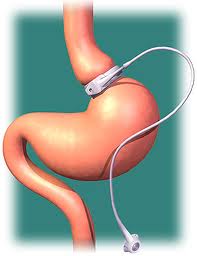In response to many requests after last week’s live video interview about obesity and COVID-19, this week I’d like to focus on how the coronavirus pandemic can put us at risk of unwanted weight gain.
Let me start by saying this: For many people, the COVID-19 pandemic is a breeding ground for weight gain and worsening of obesity.
Why?
One of the biggest factors is the tendency for most of us to eat more during stressful or upsetting times. Most people have an emotional relationship with food: we eat when we feel stressed, sad, bored, anxious…. Anyone out there not feeling at least one of these emotions? I didn’t think so. These emotions can be triggers to eat, because food (especially high fat/high sugar foods) release hormones in our brain (eg dopamine, opioids) that make us feel happier.
As part of physical distancing, we are shopping for groceries less often, which means that we need to find foods that have a longer shelf life. We may not have as much access to fresh veggies and fruit as usual. Many long shelf life foods are not healthy foods – they are highly processed by design so that they will last a long time. Our favorite snack/treat/junk foods usually fit the bill of having a long shelf life as well – cookies, chips, candy, chocolate and so forth – and they are especially good at releasing the happy hormones in our brain. Who wouldn’t feel the appeal of shopping for months of movie night?! We are also now at home most or all of the time, with our pantry being just an arm’s reach away. So, if we bring these foods into our homes, it can be very, very hard to say no.
Adding on to all of this, we are in desperate financial times. Many are without jobs and without income. Thus, the dollar needs to stretch further at the grocery store. Highly processed, unhealthy foods tend to be the cheapest products as well.
Now let’s look at the ‘energy out’ side of the equation. Being physically isolated in our homes, our individual worlds have become much smaller. No longer are we walking from our car or train to the office, no longer are we walking kids to school, no longer are we moving around in society, burning calories with our usual daily activities. Our worlds are now limited to a few hundred square feet inside our homes, with variable ability to get outside. You might even be on full quarantine and not permitted to leave your home to take a walk.
Put these together, and it is plain to see that there are many driving factors during the coronavirus pandemic that will promote weight gain for many.
That being said (here’s the ‘for better’ part): interestingly, some of my patients (and those of my obesity medicine colleagues in Canada as well) are reporting that it is easier for them to manage their weight during this pandemic. Those who have social outings as triggers, those who have struggled with having to eat on the go during a work day, or who usually have to entertain clients at restaurants, are not currently facing these obstacles. For some people, sleep is actually currently better with a less hectic work schedule. More online grocery shopping may lead to less impusive buying. More on this on a future blog post!
For those who ARE struggling: what can we do to manage weight during the coronavirus pandemic?
- Make healthful food choices at the grocery store. Choose foods that have a long shelf life but are on the healthier side. For example: canned tuna/fish, wild rice, canned beans, frozen veggies and fruit. If you can, buy veggies with a long shelf life: root vegetables, squash, carrots, brussels sprouts, sweet potatoes are good examples. We need to eat healthily to keep our bodies and immune systems strong.
- Reduce portions to fit with our reduced energy needs.
- Mindful eating – give thought to why you eating. Are you eating because you are hungry, or eating to manage an emotion? If you are eating in response to an emotion, consider something else you can do to manage that emotion, such as physical activity (see below), FaceTiming with a friend or family member, or taking a warm bath.
- Journal food intake. This helps us to eat mindfully.
- Be active however you can. Walk outside if you are permitted and able. There are lots of apps and online free indoor exercises and workouts available. Active video games can be great for kids of all ages.
- Turn the news off. Don’t have it running 24/7 in your home. The news about COVID-19 can be overwhelming and can be a powerful driver of emotional eating. Learn what you need to learn and then shut it off.
- Minimize social media, for the same reason. Use it to connect with family and friends, but limit social surfing about coronavirus.
- Take time each day to feel gratitude for something. Remember that there is no room for sadness during a moment of gratitude.
Subscribe to my blog (box top right) for more on COVID-19 in the coming weeks.
Follow me on twitter! @drsuepedersen
www.drsue.ca © 2020











